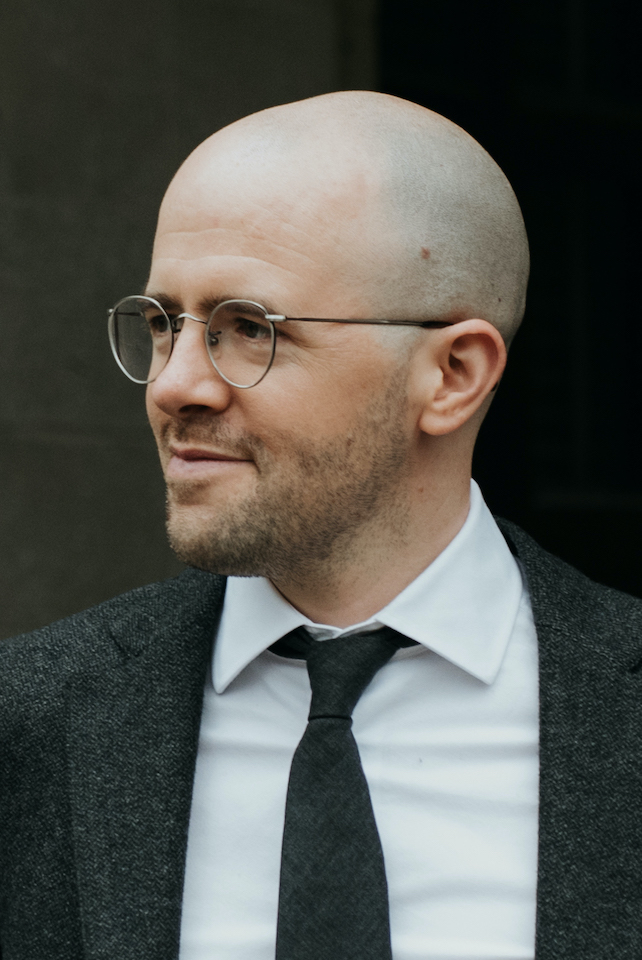
Brian Christian is an acclaimed author and researcher whose work explores the human implications of computer science. He is known for his bestselling series of books:
The Most Human Human (2011) uses his experience as a human “confederate” in the Turing test to examine what chatbots reveal about the nature of language and communication. It was named a Wall Street Journal bestseller, a New York Times Editors’ Choice, and a New Yorker favorite book of the year.
Algorithms to Live By (2016), co-authored with Tom Griffiths, applies computational principles to everyday human decision making, painting a counterintuitively human picture of rationality. It was named a #1 Audible bestseller, Amazon best science book of the year, and MIT Technology Review best book of the year.
The Alignment Problem (2020) is an investigation of the ethics and safety challenges confronting the field of AI, and a portrait of the community of researchers working to address them. Nature called it “Meticulously researched and superbly written,” and The New York Times called it “The best book on the key technical and moral questions of AI.” Microsoft CEO Satya Nadella named it one of the books that most inspired him. The Alignment Problem was a Finalist for Los Angeles Times Best Science & Technology Book of the Year and won the Excellence in Science Communication Award from the National Academies of Sciences, Engineering, and Medicine.
As a researcher, Christian’s work spans from computational cognitive science to AI alignment and has appeared in peer-reviewed journals from Dædalus to Cognitive Science as well as at conferences from FAccT to CogSci to NeurIPS. He is a recipient of the Clarendon Scholarship, the University of Oxford’s most competitive research scholarship. He is affiliated with the AI Policy and Governance Working Group at the Institute for Advanced Study in Princeton, the Center for Human-Compatible AI and the Center for IT Research in the Interest of Society at UC Berkeley, and the Human Information Processing Lab at the University of Oxford.
As a software developer, Christian’s work has shipped on over a hundred million Mac computers since 2019, and his open-source contributions span the Ruby web stack (Rails, Bundler), the Python data-science stack (Pandas, Matplotlib), and Apple’s MLX framework for large language models. He built websites for Silicon Valley startups and the Fortune 50 in the 1990s, developed intranet portals for Johnson & Johnson in the 2000s, and served from 2013–2022 as Director of Technology for the innovative literary publisher McSweeney’s, where he led a small team responsible for the company’s technical infrastructure.
As a writer, Christian’s work has been translated into nineteen languages, and has appeared in The New Yorker, The Atlantic, Wired, The Wall Street Journal, The Guardian, and The Paris Review. His writing has won several literary awards, including fellowships at Bread Loaf, Yaddo, and MacDowell, publication in Best American Science & Nature Writing, and an award from the Academy of American Poets.
As a speaker, Christian has been a featured guest on The Daily Show, The Ezra Klein Show, and Radiolab, and has lectured at Microsoft, Google, Meta, Yale, the Santa Fe Institute, and the London School of Economics. He has advised business executives as well as Cabinet Members, Parliamentarians, and policymakers in six countries and the UN about matters ranging from decision making to AI.
Born in Wilmington, Delaware, Christian studied computer science and philosophy at Brown University, poetry and nonfiction at the University of Washington, and cognitive science and machine learning at the University of Oxford.
He lives in San Francisco and the UK.
◊
To be the first to hear about new books and events:
For speaking inquiries, please contact Wesley Neff at the Leigh Bureau:
wesn@leighbureau.com
For everything else:
info@brianchristian.org
◊